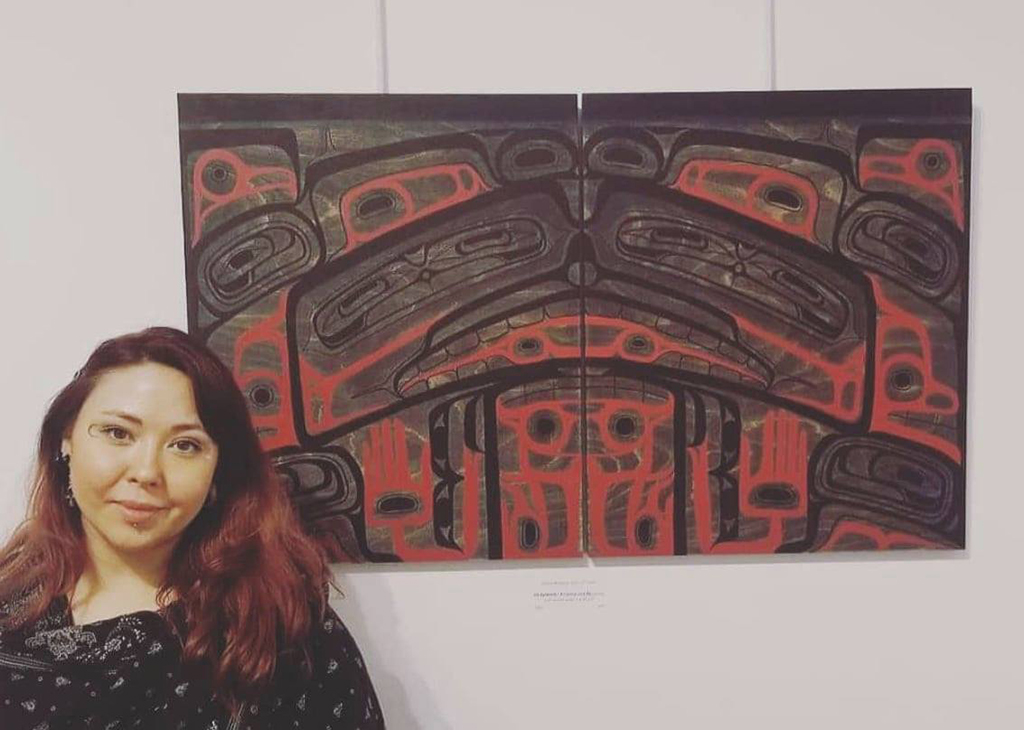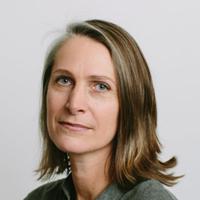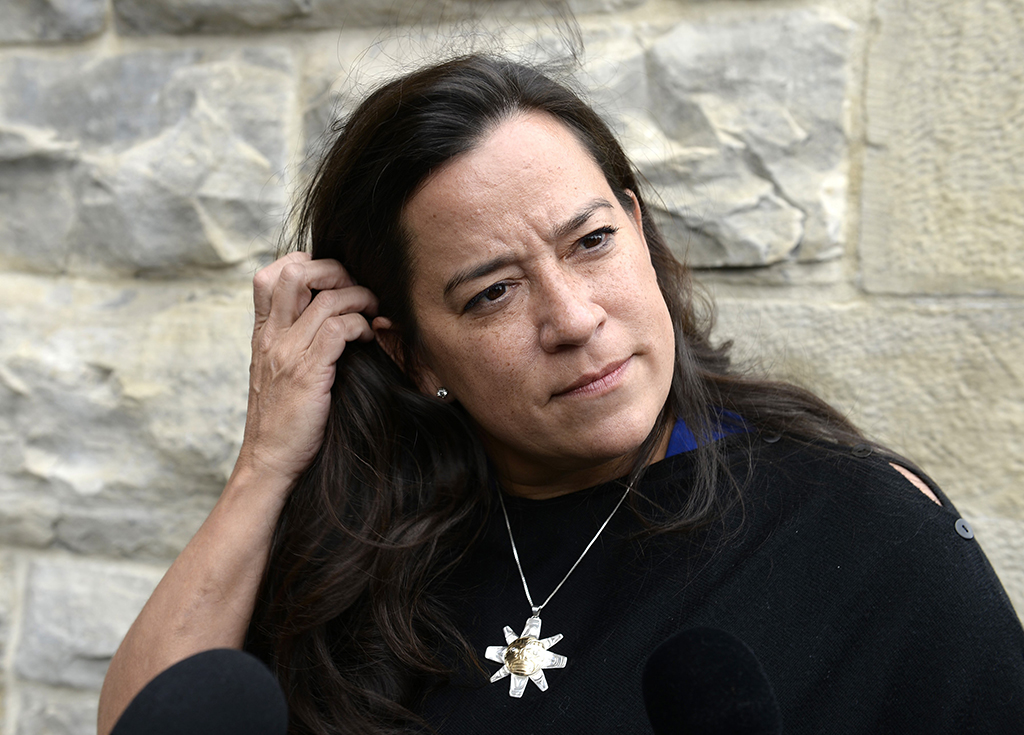It was already going to be a difficult day. Jody Wilson-Raybould went to bed the night before knowing that news would break the next morning that 751 unmarked graves had been discovered on Cowessess First Nation territory in Saskatchewan, sending a ripple of grief throughout Indigenous communities already mourning thousands of children who never returned from residential schools.
She awoke early that day, June 24, to a text from the Crown-Indigenous relations minister — the first since Wilson-Raybould’s departure from the Liberal caucus more than two years ago.
“Pension?” it said.
Carolyn Bennett, Liberal MP for Toronto-St. Paul’s, appeared to be implying that a tweet by Wilson-Raybould the day before, which called on Canada’s prime minister for “transformative action” on Indigenous issues rather than “jockeying” for an election, had more to do with staying in her job long enough to collect a pension.
With the horrific news out of Saskatchewan, our collective call, again, is for concrete transformative action.@JustinTrudeau, if you care enough to make things right, stop your selfish jockeying for an election—which no one really wants—and do what you promised in 2018. #215+💔 https://t.co/Oc0oyEShPk
— Jody Wilson-Raybould 王州迪 Vancouver Granville (@Puglaas) June 24, 2021
To Wilson-Raybould, a member of We Wai Kai Nation and MP for Vancouver Granville, the text was tone deaf and discouraging, a symbol of the frustration felt by Indigenous women in politics as they attempt to create systemic change from within an institution rife with ingrained racism.
“I was upset,” she says. “Honestly, I burst into tears, because I just couldn’t believe that on a day where such horrific news was going to come, that she, as minister, would think it in any way appropriate to send that.”
Bennett’s office did not respond to The Tyee’s request for comment. In a tweet, she expressed regret, calling the text “insensitive and inappropriate.”
Racist & misogynist text from @Carolyn_Bennett #215+
— Jody Wilson-Raybould 王州迪 Vancouver Granville (@Puglaas) June 24, 2021
Reflects notion that Indigenous peoples are lazy & only want $
Shows disregard, disdain, & disrespect for Indigenous peoples, as in our history
Conveys a strong Indigenous woman, is a bad Indig woman. #HonourtheChildren #Act pic.twitter.com/3zwf4vnRt6
Wilson-Raybould isn’t the first to speak out about the toxic environment faced by Indigenous women in politics.
Bennett’s text came a little over a week after Nunavut NDP MP Mumilaaq Qaqqaq, who recently announced she will not seek re-election, gave a farewell speech in the House of Commons blasting the federal government on its failure to take meaningful action on Indigenous issues and describing the challenges she experiences regularly as an Inuit woman in her job.
“Mr. Speaker, every time I walk onto House of Commons grounds, speak in these chambers, I’m reminded every step of the way I don’t belong here. I have never felt safe or protected in my position,” Qaqqaq said, calling Canadian Parliament a “colonial house on fire I am willingly walking into.”
She described being chased through the halls of Parliament by security and officers nearly putting their hands on her.
“People like me don’t belong here in the federal institution,” she said.
Qaqqaq isn’t alone in the sentiment. For a former Terrace city councillor, the speech hit home.
“I felt every single word in her statement,” Jessica McCallum-Miller says.
McCallum-Miller is roughly the same age as Qaqqaq and of Gitxsan, Wet’suwet’en and Nisga’a descent, First Nations in B.C.’s northwest. Coming from a background in grassroots activism, she spent four years as an elected official with the Regional District of Kitimat-Stikine before running for city council in 2018. At 25, she became Terrace’s youngest and first Indigenous councillor.
After two and a half years, she’d had enough.
She says she faced a backlash for speaking out about Indigenous issues, specifically missing and murdered Indigenous women and girls along northern B.C.’s Highway of Tears, and some of it was from fellow councillors.
“I felt that my voice was being silenced,” she says. “I had laid my heart out for the rest of my colleagues and said to them… ‘Just because you don’t see that Indigenous women are being harmed by industrial activity throughout our area doesn’t mean it does not exist.’”
But despite her efforts, by February this year her mental and spiritual well-being had deteriorated to the point that she felt she needed to leave politics.

McCallum-Miller resigned in a Feb. 22 letter to Terrace council, posted to her Facebook page, saying that she found the role challenging due to “ethnic background, age and gender.”
“It is my personal belief that systemic and internalized racism as well as sexism had played a role in the inability of my colleagues to respect and understand my personal and diverse perspectives,” her resignation letter reads.
“I can no longer endure the mental and spiritual hardships of explaining this and ultimately being unsupported by those I work with.”
Qaqqaq has also publicly shared the toll political life has taken on her mental health. Following a tour to investigate inadequate housing in Nunavut — an issue she flagged as her number one priority after being elected — she announced earlier this year that she would take a two-month leave due to “extreme burn-out, depression and anxiety.”
In her farewell speech, she vented frustration at the lack of action on housing, high suicide rates and other issues facing Inuit in Canada: “As long as these halls echo with empty promises instead of real action I will not belong here,” she said.
McCallum-Miller’s community and cultural upbringing also inspired her to run for office.
“The reason I went into politics in the first place was it was a part of my upbringing to want to help others,” she says. “I really just wanted more for my peer group, for our community…. I said to myself, ‘There’s got to be a better way.’”
Wilson-Raybould’s story is similar.
She was raised in a political family with a strong connection to culture, her father, Bill Wilson, a Kwakwak’wakw hereditary Chief and lawyer with a long history in Indigenous rights and politics. It’s that grounding in culture and purpose that have sustained her through her various roles in politics, which include regional Chief for BC Assembly of First Nations and We Wai Kai band council.
“I was raised to know who I am and where I come from as an Indigenous person, and to be proud of that,” she says. “I also have an important responsibility to take on leadership roles that have come through the teachings of my grandmother and my parents.”
Wilson-Raybould entered federal politics in 2015 when she was elected as a Liberal MP and assigned the role of attorney general, the first Indigenous person to hold the post. The public falling out that followed between her and Prime Minister Justin Trudeau over the SNC-Lavalin affair would result in her departure from cabinet and, ultimately, the party.
She successfully maintained her seat as an independent in the 2019 federal election.
“I am still proud to be a member of Parliament. I came to Ottawa wanting to create the space for Indigenous peoples to rebuild within a stronger Canada and to advocate for social justice issues,” she says. “I will continue to do that.”
But she also recognizes the systemic racism that has discouraged politicians like Qaqqaq. It needs to change, she says.
“Her leaving politics for the reasons that she articulated, in terms of colonial institutions, the ongoing reality of the colonial legacy, that’s real. That exists today,” she says.
“Like the tragedies that keep coming to the fore, with Cowessess and Kamloops before that, [it] should be a continuous wake-up call for federal politicians, for Canadians, that we still live within a colonial reality, and our institutions perpetuate that.”
Wilson-Raybould would like to see political party leaders making a meaningful effort to encourage Indigenous women to run for public office — not just as a token gesture, but in ridings they have a chance of winning.
Grand Chief Stewart Phillip with the Union of B.C. Indian Chiefs also expressed a need for more Indigenous women in politics in the leadup to last fall’s provincial election: “I believe that if we had parity in leadership, the world wouldn’t be in such a mess,” he told The Tyee.
On Thursday, the organization called for Carolyn Bennett’s resignation as minister of Crown-Indigenous relations for her “racist, demeaning” message to Wilson-Raybould.
After McCallum-Miller stepped down, the Chiefs also wrote an open letter to Terrace city council expressing alarm that she had experienced “treatment that has defined Canada’s colonial legacy with the systemic and internalized racism and discrimination that has suppressed our voices, identities, and cultures for centuries.”
Four months after leaving politics, McCallum-Miller is in a better place. She says her work with Terrace-based Matriarchs in Training has provided a supportive platform from which to advocate for Indigenous rights.
In April, the Freda Diesing School of Northwest Coast Art graduate was awarded the Lieutenant Governor’s Medal for Inclusion, Democracy and Reconciliation, something she says came as a “huge surprise.”
“I cried so many happy tears,” she says. “I thought, OK, somebody heard me when I was talking about reconciliation and what we needed.”
In addition to support from friends and family, Wilson-Raybould says she finds strength from the thousands of people who have reached out to support her — both over the past few days and through years of political ups and downs.
“It’s generally the sentiment of Canadians that carries me through,” she says. “I hope Canadians continue to speak up and encourage governments to do the right thing by Indigenous people.”
She adds that Qaqqaq’s recent speech will mark its own chapter in the fight for Indigenous women and their place in Canadian politics. It’s something that Qaqqaq, who was unavailable for an interview, expressed herself in the speech that has garnered nearly 40,000 views on YouTube.
“You see Mr. Speaker, I don’t belong here. But my presence, I hope, is starting to crack the foundations of this very federal institution that started colonizing Inuit barely 70 years ago,” she said. “It is possible to create change. It can be started here in the House of Commons and reflected in Canada.” ![]()
Read more: Indigenous, Rights + Justice, Politics
















Tyee Commenting Guidelines
Comments that violate guidelines risk being deleted, and violations may result in a temporary or permanent user ban. Maintain the spirit of good conversation to stay in the discussion.
*Please note The Tyee is not a forum for spreading misinformation about COVID-19, denying its existence or minimizing its risk to public health.
Do:
Do not: